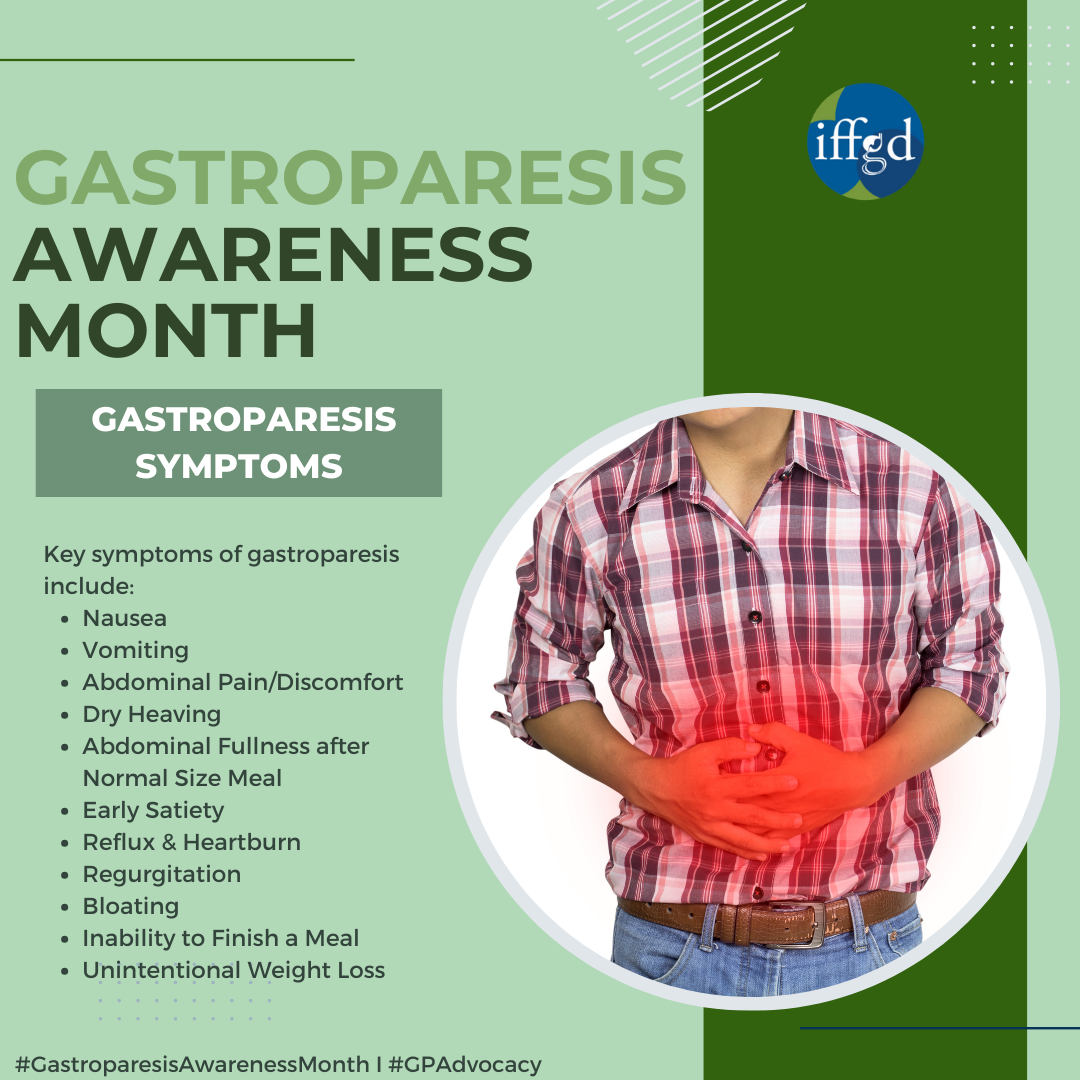Chronic symptoms for gastroparesis include:

- Abdominal pain/discomfort – dull to sharp pain in the upper stomach area that occurs inside the belly, often in the stomach or intestines.
- Nausea– a feeling of sickness felt in the abdomen, stomach, chest, or head with the feeling of needing to vomit.
- vomiting– bringing food back up from the stomach into the mouth.
- reflux – a burning feeling in the esophagus. The esophagus is the tube that connects the mouth and stomach.
- Early fullness (satiety) – feeling full after only a small amount of food.
- Regurgitation – bringing contents up through the esophagus from the stomach.
Other Symptoms that People Experience
- Bloating, as well as stomach discomfort or pain, is also noted by some persons with gastroparesis, particularly as symptoms become more severe.
- Weight loss may occur due to decreased appetite.
- Heartburn may occur as a result of reflux due to delayed stomach emptying.
If symptoms of gastroesophageal reflux disease (GERD), like heartburn or regurgitation, do not respond to treatment a gastric emptying test may be done to check for delayed stomach emptying (gastroparesis).
Gastroparesis (GP) symptoms can contribute to additional health complications that significantly reduce a person’s quality of life. Common symptoms such as nausea, abdominal pain, and early satiety (feeling full too soon) can increase the risk of malnutrition—a condition where the body does not absorb sufficient nutrients, including essential vitamins. This can further lead to fatigue, weakened immunity, and other long-term health challenges.
Any combination of gastroparesis symptoms can affect a patient’s daily functioning, often resulting in difficulty eating, disrupted sleep, and emotional impacts like depression and anxiety.
It’s important to note that gastroparesis symptoms can vary widely from person to person and typically occur during or after meals. Interestingly, the severity of symptoms does not always correspond with the degree of delayed stomach emptying.
The Most Troubling Gastroparesis Symptoms Reported by Patients
In IFFGD’s 2016 Gastroparesis in the Community Research Survey, 1,423 adults shared their experiences with severe gastroparesis. When asked which symptoms were most troubling during flare-ups, respondents reported:
- 51% – Nausea
- 46% – Stomach pain
- 30% – Vomiting
- 25% – Bloating
- 15% – Stomach discomfort
These findings highlight the significant burden gastroparesis places on daily life and the urgent need for better treatment options.

Updated 2025
Adapted from IFFGD Publication: Gastroparesis (Delayed Stomach Emptying) by Presented by J. Patrick Waring MD., Digestive Healthcare of Georgia, Piedmont Hospital, Atlanta, GA and William F. Norton, Publications Editor, International Foundation for Functional Gastrointestinal Disorders (IFFGD), Milwaukee, WI and IFFGD Publication: Gastroparesis Overview by: Baharak Moshiree MD MSc, Mackenzie Jarvis PA-C, DMs, Atrium Health, Wake Forest, Digestive Health-Morehead Medical Plaza; Marissa Lombardi, International Foundation for Gastrointestinal Disorders, Mt. Pleasant, SC
